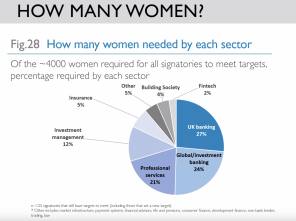

The investment industry has been called on to embrace greater neuroinclusion through flexibility and fairness in the workplace.
People with autism, asperger’s, ASD, Dyslexia, Dyspraxia and ADHD have shared their experience of working in the investment industry in a first-of-its-kind report aimed at understanding their experiences in the workplace.
Undertaken by the Diversity Project, the research found that of the 120 respondents, over half had not yet disclosed their condition to their employers.
The main reason given for this was a belief that doing so would limit their career prospects.
One respondent said: “I've never disclosed my neurodiversity during recruitment, since it may be interpreted as ‘will do half the job and not be able to tolerate stress'.”
However, of those who had disclosed their condition, 70 per cent found their employer to be supportive.
The report’s author, and senior HR practitioner at the Diversity Project, Ian Iceton, highlighted that while this is positive, more needs to be done to support neurodivergent workers.
Named conditions respondents associated with
Autism/Asperger’s/ASD | 41% |
Dyslexia | 22% |
Dyspraxia | 10% |
ADHD | 45% |
Other | 18% |
*Some respondents associated with more than one condition
In Iceton’s view, the first step of this involves better data collection to enable employers to fully understand the needs of their staff.
“While most employers will diligently collect information on the diversity of their workforce, this will almost always exclude anything meaningful relating to neurodiversity,” Iceton said.
As a result of this, the scale of neurodiversity can go unrecognised according to the report, which noted: “If this absence of evidence isn’t seen as a problem, there is little chance of an employer seeking a solution.”
The report highlighted that a HR package that is in common usage by firms requires a person with autism who wishes to disclose their condition to first tick a box to say they have a disability and then to identify this disability as ‘cognitive/intellectual’.
But respondents to the survey were split on whether they considered neurodiversity a disability or not, with 54 per cent saying that they do consider it one.
A more useful set of questions, according to the report, might begin by asking if the individuals consider themselves to be neurodiverse and if so, whether they also consider themselves to be disabled.
“This will show that the two categories overlap, rather than automatically considering neurodiversity to be a disability,” the report said.
It continued: “Of course, this will not necessarily correspond to the definition applied in disability discrimination legislation, but it will still be a useful record of how the person sees themselves.”
The findings from the research also showed that only 65 per cent of respondents who identified themselves as being neurodivergent had received a formal diagnosis, while 35 per cent had not.
The report noted that because of this, it may be helpful when collecting data to have the opportunity for the individual to state: “I have received a formal diagnosis”, “I am seeking or awaiting a formal diagnosis” or “I am not seeking a formal diagnosis”.
“This will show that a person is free to disclose their neurodiverse status without the assumption they will at some point be expected to provide any medical certification,” the report said.
Embracing neuroinclusion
When asked what one change in the investment industry would improve their working experience, the responses were varied but had a common thread of embracing neuroinclusion and being more flexible and fair.
One respondent said: “Employers should actively seek neurodivergent people for certain roles that they are very capable of fulfilling.”
Another highlighted that they felt more training around different neurodiversity was needed for all staff, and said: “My manager has been very supportive but other colleagues have not had the same experience.”
Flexibility around working environments was also highlighted as an important step towards inclusion.
One respondent said: “The increased flexibility around working from home/office has been hugely beneficial. One size does not fit all in terms of working environments, especially for the neurodiverse.
"Allowing people to work in environments and ways that suit them can only lead to a better work experience and better outputs for the business.”
Iceton noted that while companies are making significant strides in championing diversity, equity and inclusion in the workplace, many organisations still lack a specific inclusion strategy for neurodiversity in the workplace.
“Now is the time,” he said.
jane.matthews@ft.com



